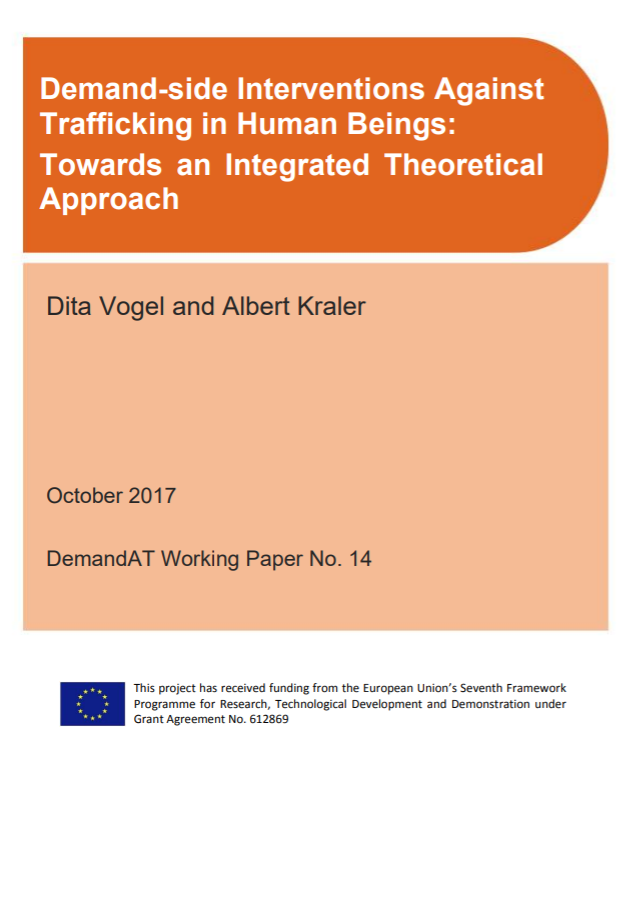
Trafficking in human beings covers various forms of coercion and exploitation of women, men and children. Responses to trafficking have traditionally focused on combating the criminal networks involved in trafficking as well as protecting the human rights of victims. However, European countries are increasingly exploring ways to influence the demand for services or products involving the use of trafficked persons or for the trafficked persons themselves.
DemandAT aims to understand the role of demand in the trafficking of human beings and to assess the impact and potential of demand-side measures to reduce trafficking, drawing on insights from related areas on regulating demand.
DemandAT takes a comprehensive approach to investigating demand and demand-side policies in the context of trafficking. The research includes a strong theoretical and conceptual component through an examination of the concept of demand in trafficking from a historical and economic perspective. Regulatory approaches are studied in policy areas that address demand in illicit markets, to develop a better understanding of the impact that the different regulatory approaches can have on demand. Demand-side arguments in different fields of trafficking as well as demand-side policies of selected countries are examined, to
provide a better understanding of the available policy options and impacts. Finally, the research also involves in-depth case studies both of the particular fields in which trafficking occurs (domestic work, prostitution, the globalised production of goods) and of particular policy approaches (law enforcement and campaigns). The overall goal is to develop a better understanding of demand and demand-factors in the context of designing measures and policies addressing all forms of trafficking in human beings.
Country
Worldwide
Region
Worldwide
Year
2017